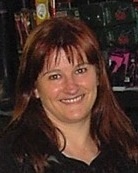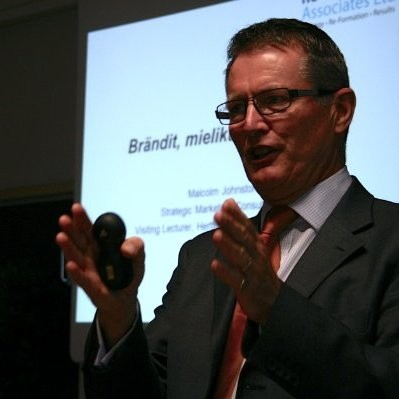The phrase ‘part-timer’ has garnered some seriously negative connotations over the years, all unwarranted and unfair in our eyes. And one of the most common questions our potential clients ask is how a part-timer can handle the workload of a marketing strategy. Can we deliver while only working part-time?
The fact is, if the time is being used wisely and efficiently, a part-time worker can get a huge amount done. It’s not about working harder, it’s about working smarter. But then we would say that, wouldn’t we? We parachute in part-time senior level Marketing Directors to businesses to improve their marketing strategy and accelerate growth. In short, we’re biased.
Which is why we got together with three of our clients to find out what it’s really like working with a part-time Marketing Director. Let’s meet the interviewees.
Profile:
Name: Simon Wakefield
Position: Director
Company: DR Wakefield
Employees: 15-20
What they do: Green bean coffee traders based in London
Marketing Centre Director: Gina Wessels
Website: http://drwakefield.com
Name: Chris Wahlers
Position: Director and co-owner
Company: Unigloves
Employees: 25-30
What they do: High quality, single-use glove supplier and manufacturer based in Rochester
Marketing Centre Director: Robert Stead and Malcolm Johnston
Website: www.unigloves.co.uk
Name: Beverly Ford
Position: Managing Director
Company: Rota Val
Employees: 35-45
What they do: Rotary & Diverter Valve Manufacturer based in Chippenham
Marketing Centre Director: Tracy Richards
Website: www.rotaval.co.uk
The Marketing Centre: Hi all, thanks for joining us. To explain, the idea of this interview is to get an honest appraisal of working with a part-time Marketing Director, and The Marketing Centre in general: the good and the bad. Before we get onto your experiences with us directly, it would be good to get an idea of your previous experiences with marketing in your businesses...
Simon Wakefield: Well, for us, we were just doing what we thought needed doing marketing-wise, mostly in an irregular and somewhat haphazard manner [laughs]. There was no grand strategy as such, no structured plan, and more importantly no checks to ensure we were being effective.
Chris Wahlers: In Unigloves’ case, we hadn’t really done any marketing at all before I arrived. I mean they’ve done things like produce sample sleeves for customers and they’d done the odd sort of promotion here and there, but no real marketing of any substance.
Beverley Ford: Same here. We’re in an industry [industrial manufacturing] where, traditionally, customers come to us rather than us market to them. Up until around 2010 we really didn't do any marketing. We did adverts, we did publicity and technical articles in trade journals, but we were known in the industry so if people wanted one of our products, they came to us and asked for a quote.
The trouble is, the marketplace has changed hugely since 2010, there has been an increase in the activity of global competitors, so we had to look for answers. That’s why we investigated a marketing-led solution rather than relying on advertising. One of our sales guys went on a marketing course and got his marketing diploma so we promoted him internally off the back of that. We’re a small company and a lot of people in the organisation have to wear two hats, so he was handling both the marketing and the sales. To cut a long story short, it didn't work out. He simply didn’t have the time to do both roles.
TMC: So that’s when you turned to The Marketing Centre?
BF: Yes, well, we knew he couldn't do everything so we were looking for an alternative. There certainly wasn't enough work to warrant somebody full-time, the industry just doesn't uphold that. But we really needed help with marketing.
We’d looked at a number of consultants, but they are horrendously expensive. And they come in, tell the sales guys what they need to be doing, and then they go away again; and then charge a fee. Having worked with consultants in other areas of the business, if you don’t have people on the ground, the work tends to get put to one side and then you have a mad rush when the consultant is next in again because you hadn’t done what you were supposed to have done in the first place.
It’s not efficient and it doesn’t actually free up any capacity.
Anyway, during our hunt, we got an email from The Marketing Centre out of the blue. It was the right email at the right time really. The subject line caught my eye and I ended up contacting Clare [Methven] off the back of it.
TMC: Simon, Chris, what about you, what was the catalyst for contacting us?
CW: We were actually referred in by The FD Centre [the financial sister firm of The Marketing Centre]. When I came into the business I was nervous about the financial side of things. I can set up accounts, but obviously I hadn’t been involved in the company and I was taking other things on trust. So first and foremost I wanted a part-time Financial Director to come in and give me some backup. So I found one.
Then through Simon [the Financial Director] we learned about The Marketing Centre, and thought, well actually, although we have a company full of people who know the industry reasonably well here, there’s no one with proper marketing experience.
The thought of an experienced Marketing Director was appealing: I could learn from them and we could develop the team to make sure we’d got the best resources we could. We were looking for something not too expensive so part-time was the best solution. We’d already used the FD Centre so we knew the part time model worked for us. We got the expertise and everyone benefitted from it for a fraction of the cost.
SW: Yes, we were referred by the FD Centre, too. We’d been discussing our marketing, or lack thereof, with our Finance Director and he mentioned The Marketing Centre to us. As I said, we had been marketing our business, but not in a particularly cohesive manner. However, we did start seeing some results from our activity. We realised that we needed help to put on the make-up and tidy our hair when we stepped out into the unforgiving world. We needed to rebrand and to synchronise our messages and presentation as we realised that we were falling behind our competition.
TMC: I was going to ask about any concerns you had about working with a part-timer rather than a full-time employee. Chris, you mentioned you already had experience with the FD Centre, and I guess the same is true of you too, Simon. Did either of you have concerns?
CW: No, not really I would say because I think in our area it’s quite difficult to find talented people, and to get someone of their quality on a full-time basis it just wouldn’t have been economical. And to be honest the business wouldn’t really justify it either.
There were some ways in which having a part-time person did cause some problems, but perhaps not in the way we’d expected. And I would say that I would still do the same thing again, so no concerns about it being on a part-time basis initially.
SW: Like you say, from working with the FD Centre, we understood what the role would need and what we would get from it. Of course, the workload still needs a structure to ensure that our marketing director’s tasks were managed in her weekly day in the office, but we knew that from the beginning. We were prepared.
TMC: Beverley, did you have any concerns about hiring a part-timer?
BF: Internally, there was really no worry at all. The sales team knew that Tracy was coming in to make their lives easier and achieve what they wanted to achieve. The great thing about having Tracy on board is, she’s here, physically, for two days a week so, as far as the employees here are concerned, she’s pulling her weight, doing her bit. Helping them with processes, doing the background legwork to setting up process and CRM and surveys.
Tracy Richards: The Marketing Centre's Marketing Director for Rota Val
I told the team she was coming in and the feeling was one of relief more than anything. They didn't want to carry on knowing that they weren't working in the best way possible. She’s not asking the team to do much more than they’re already doing, she’s asking them to change the way they do things. So from an employee’s point of view, they’re not getting a ton more work to do.
TMC: Great. Now, The Marketing Centre focuses heavily on ROI and quick wins, what were the biggest things they did for your business early on?
SW: I’m not sure about a quick win, but Gina helped us to rebrand across the board, on paper and digitally. We have been trading coffee for over 40 years and are very well established in the industry, but Gina got under the skin of the business and really found out what we were all about. Having a cohesive direction, voice and brand for DR Wakefield was key, and Gina was able to come in and ‘get’ us. She’s a great cultural fit.
Gina Wessels: A "great cultural fit" with DR Wakefield
CW: The main thing for us in the first few months was process. There were a lot of basic things we weren’t doing that needed putting right. I was talking to my business partner, Kevin, and he had a good feel for certain things, but he was doing a lot of it based on instinct rather than analysis. I asked him the breakdown of the sectors of our core customer base, and he said most of it is janitorial and quite a bit of it was tattoo, and a chunk of it is dental.
But what Robert did was actually crunch the numbers and say, ‘these are the percentages of these sectors, these are the percentages of products that are going to be affected, and these are the mark-ups on the products here, so this is your most profitable segment. What we should be thinking about is potentially adding one or two new products into that profitable sector… in this sector there’s room for growth by looking for new business…’ It was that type of analysis that hadn’t been done by anybody previously. So that was the first thing he did to get us heading in the right direction.
BF: Well, Tracy has only been with us for 8-9 weeks, but the quickest win for us has not been financially, she’s really picked morale up internally. Having her in, supporting the sales staff and bringing new ideas and action has been really refreshing and given us all a boost. And also, from day one, we’ve had a more consistent position in the marketplace.
TMC: So we’ve talked about the positives, have there been any issues or problems working with a part-time Marketing Director?
BF: None at all. Before they met Tracy, there was some initial resistance from our sales guys. The thing about our sales team is that they are not sales people in the true sense of the word, they’re engineers really. They have to be technical to quote and sell the product. The misconception from them was that, well, how can anybody market a business if they haven’t done it and don’t understand it? Once they finally met Tracy, that was very quickly cleared up in their minds. They realised what she was trying to do was not what they were doing.
SW: Well, unlike Bev, we only have Gina for one day a week, and that can sometimes be an issue; it’s not always enough. Projects are kept online and not left from one week to the next, but sometimes the workload can increase to a level where additional days need to be arranged. But in terms of the work, none at all.
CW: Okay, so we have had issues, certainly, mainly due to perception. I mentioned about Robert’s process-related work earlier, part of the problem we had was that, although Robert had been with us a year, he still hadn’t really done what people inside the business would see as marketing - the visible stuff.
Robert Stead: The first Marketing Director to work with Unigloves
He had undoubtedly added a lot of value - we’d got a new website, we were starting to get products rebranded, a lot of positive stuff - but what the team internally saw as marketing was things like email campaigns, mail shots and that sort of thing. Kevin as well, to be fair, that’s what he was expecting too.
TMC: You ended up with a different Marketing Director eventually didn’t you?
CW: Yes, and in fairness that was Robert’s idea. He thought Malcolm [Johnston] would be a better cultural fit for the business and had more of that kind of experience. So it was his suggestion. Before he left though, Robert and I decided was that it was probably the right time to get a full-time Marketing Manager on board, someone who could supplement the strategic work. So we agreed to go out and look for a good strong Marketing Manager who would be here full-time, who would be actually running the campaigns and getting the stuff done.
Malcolm Johnston: The Marketing Centre's Marketing Director for Unigloves
I think if I could change anything, that’s what I would have done sooner I think. Having a Marketing Director in one day a week provides value from a strategic point of view, but their time, for us, was not best spent doing the day-to-day stuff. Where I found we got the most value out of Robert, and where we get the most value out of Malcolm, is more in the non-exec type stuff, the more strategic advice. And there were the same issues to be fair with sales and with finance, in the end we ended up creating a Sales Manager and getting a good Management Accountant on board for exactly the same reasons.
TMC: That’s not uncommon, for people to think about marketing and automatically think about the communications aspect: the external facing brand, social media, email campaigns, and maybe a bit of content as well.
CW: Yes, absolutely. And internally that caused a few… not really problems, just sort of resistance. Because Robert had been with us for a year, and although Kevin and myself, and obviously Simon and Mark, were very aware of what he was doing and all the good things he was doing; for the rest of the team who weren’t involved on a day-to-day basis there would be eyebrows raised.
People would say, ‘Well we’re spending all this money, I can’t see anything. I haven’t seen our name on any brochures, I haven’t seen any emails go out with marketing…’ They didn’t see all of the work that Robert was doing behind the scenes.
TMC: Nothing loud and shiny.
CW: Exactly, exactly. So I think looking back I’d probably would look to getting somebody full-time at the same time as having the guidance. I think it seems to work best when we’ve got somebody full-time doing the day to day stuff, and then two or three days a month the Marketing Director, or Sales Director, Finance Director comes in and gives the oversight and the strategic guidance, and the experience rather than the hands-on stuff.
TMC: So, a question for everyone, what are the three best things to come out working with a part-time Marketing Director?
SW: Gina, Gina and Gina, of course!
Work-wise, it’s been amazing having someone to take the lead on marketing strategy, with our input. We’ve had access to a strong pool of complimentary services such as printers, designers, social media. And we’ve been able to create a strong brand, not just the logo – the whole ethos of the company.
BF: For us, even in a reasonably short space of time, our presence in our marketplace has increased dramatically. As I mentioned earlier the morale, internally, has been overwhelmingly positive and the impact on our costs has been minimal. It’s been so far, so good. I’m genuinely pleased. I do feel it’s the right step to have taken.
CW: Practically, Robert had a lot of commercial value in terms of where the business might go, and what the opportunities look like. He was massively involved in our new website in the rebranding process, he had some real insight to offer into the approach we were taking to the branding. We had a brand consultant who we were working with, helping us with the design element of it, but Robert was very good at setting up the brief in the first place. The same goes for the website, and liaising with the supplier to actually produce something that was really high quality. So that was a massive use as well, there’s nobody else who could have done that in that way I think.
Robert also did a fantastic job of recruiting a Marketing Manager, we spent a long time looking for a good person to do the day to day work while Robert focused on strategy. We had one that almost started and then it fell through, and they backed out at the last minute. But we’ve found a real gem in Susan, so that genuinely is one of the best things that could have happened.
And yeah, a good sense of humour too, he fitted in with everybody. So, of course, that was important as well. Is that three [laughs]?
TMC: That’ll do, yes! This always seems like a bit of a leading question to end on but would you recommend a part-time Marketing Director to other businesses?
SW: Absolutely. Concentrate on what you do best and get a professional in to present you in the manner that best fits your style and culture.
CW: I would definitely recommend them if you use them in the right way. I would hire a Marketing Manager to do a Marketing Manager’s job. I think where the Directors really add value is in a Director’s role, almost a non-exec role; strategy and the guidance. So yes, I’d absolutely recommend them as a Marketing Director.
BF: I definitely would, yes. Especially for companies of our size.
Huge thanks to Chris, Beverley and Simon for taking the time to talk to us. If you’d like to find out more about our team of part-time Marketing Directors, get in touch.







-1.png?width=800&height=500&name=Expert%20View%20(1)-1.png)
